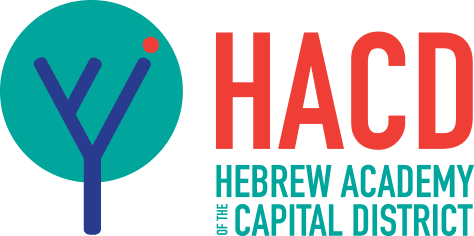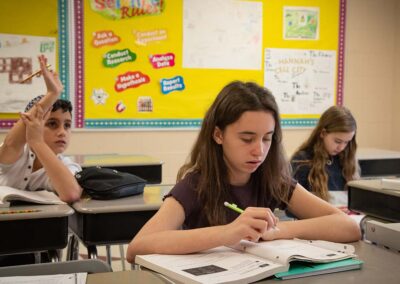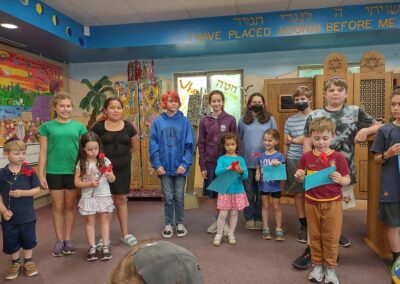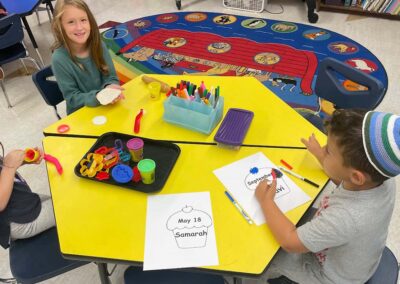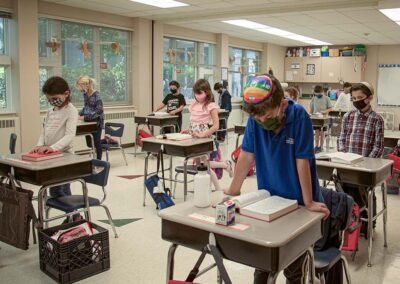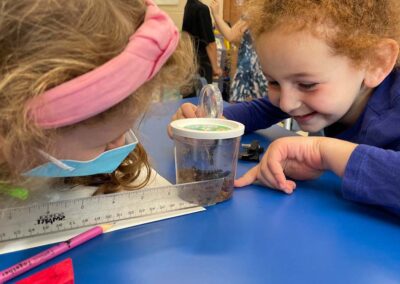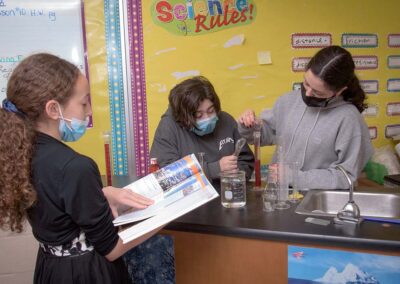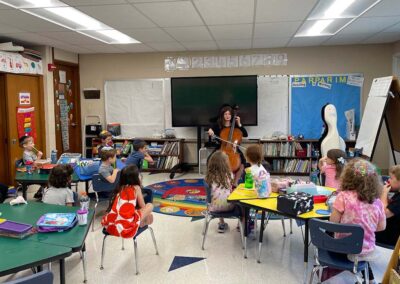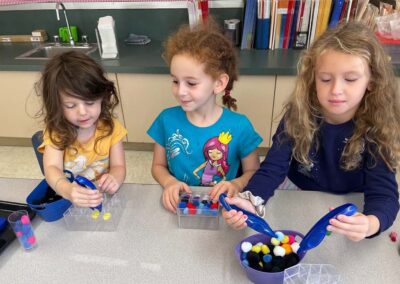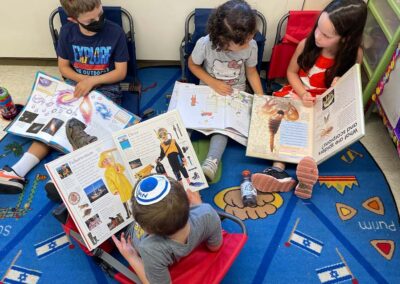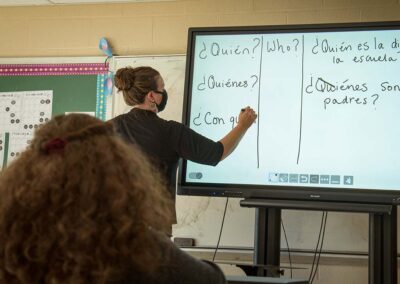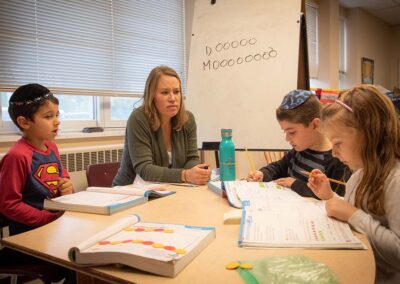Academics
Overview
General Statement
From Kindergarten through eighth grade, our rigorous general and Judaic studies curriculum challenges and inspires students to become global citizens with strong and enduring Jewish identities.
Our graduates are well prepared to excel in high school and in the 21st century. They think critically, work collaboratively, are self-reliant, persevere in the face of challenges, and have the skills and the motivation to become lifelong learners.
Our graduates are well grounded in Torah, Jewish history, Jewish law and traditions, and rabbinic thought. They understand the importance of Jewish unity despite our differences, embrace the diversity of our Jewish community, and engage in respectful discourse with those whose philosophy and practices differ from their own.
Our students develop a deep connection to the State of Israel as the homeland of the Jewish people, understand her importance to the future of our people, and are equipped to defend her right to exist as a Jewish state.
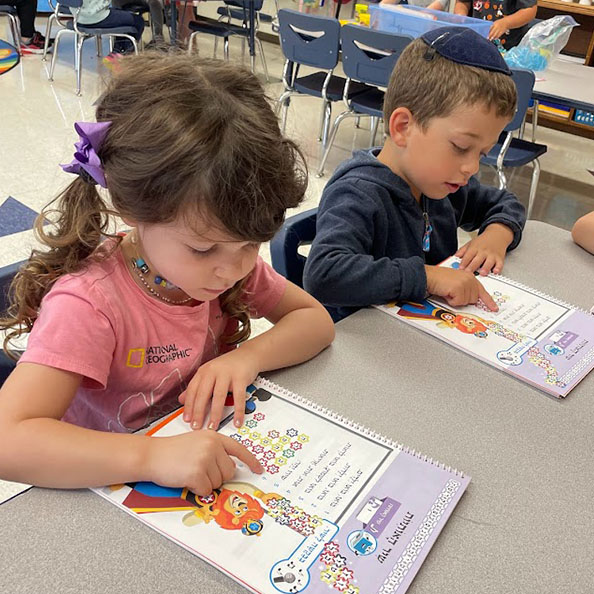
Our students hold a worldview that is shaped by Jewish values. They understand the mandate to engage in Tikkun Olam and do so by treating humanity and the earth with kindness and compassion. They are motivated to work for peace, correct the injustices in the world, and make the world a better place.
Our graduates leave our school prepared to take their next steps as the future leaders of the Jewish and secular communities in which they will reside.
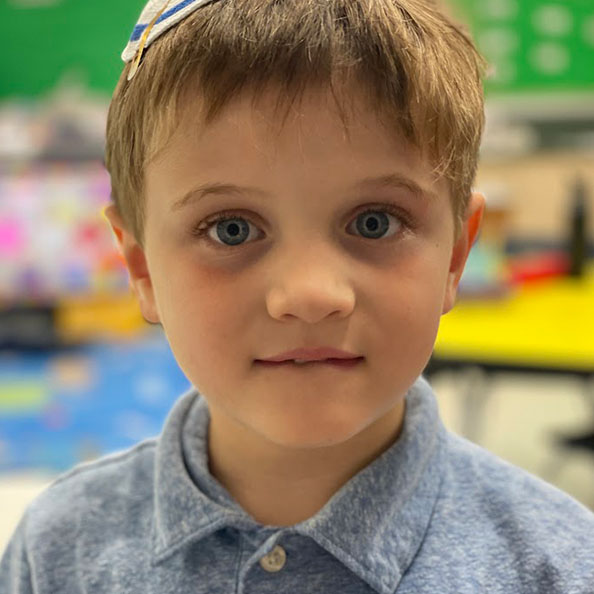
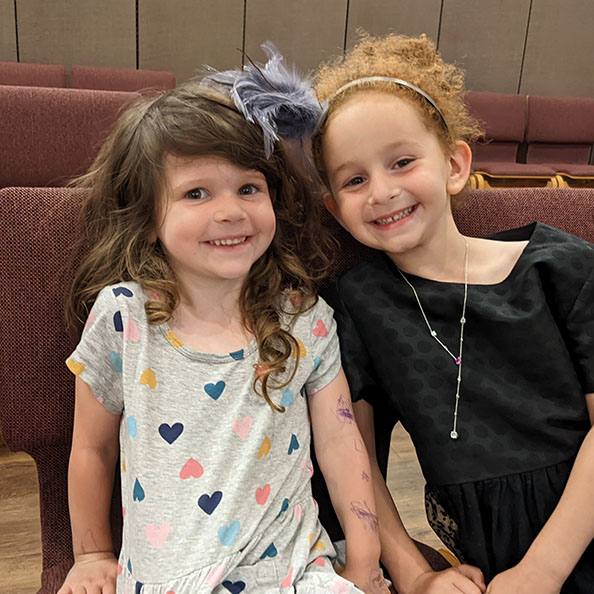
Our Curriculum
The curriculum at the Hebrew Academy of the Capital District includes a general studies program that fulfills New York State requirements and a Judaic Studies program that includes Hebrew, text study, holidays, and prayer.
Critical thinking skills are nurtured at all grade levels.
Our teachers seek meaningful ways in which to integrate general and Judaic learning at every opportunity.
Classes are multi-age, and instruction focuses on the needs of each child.
Technology, including Smartboards and tablets, is introduced in the earliest grades and is utilized throughout the school day.
Eighth-grade students may earn Regents credits in Living Environment and Algebra, and take proficiency examinations in Hebrew and in Spanish, enabling them to enter high school with advanced standing.
We strive to produce students who love learning, have the tools and the desire to be life-long learners, and are committed to maintaining a strong connection to the Jewish people.

We strive to produce students who love learning and are committed to maintaining a strong connection to the Jewish people.
Hebrew – All Grades
Our approach to the study of Hebrew is rooted in the principle that the ability to understand and communicate in the language of our people unites Jews around the world, nurtures a strong connection to the State of Israel, facilitates the study of sacred texts, and increases accessibility to Jewish tradition and practice.
The Hebrew program in the lower school is based on the iTalAm curriculum, which is used in many day schools around the world.
Parparim
Parparim students acquire Hebrew language skills through a variety of activities and experiences using all of the five senses. The classroom is a visual and auditory Hebrew environment with music, games, visual aids, and stories supplementing textbooks. Daily routines are conducted in Hebrew, and new vocabulary is introduced in context. Language units include colors, numbers, the days of the week, the classroom, the family, and the holidays. Students learn to recognize the letters of the alphabet and identify their sounds. They develop sight word vocabularies of frequently occurring Hebrew words, decode new words using phonics and context cues, and read simple texts with accuracy and comprehension. Students learn to write common words and simple phrases and begin to generate original phrases and sentences.
Nesharim
Nesharim students expand their competence in reading, oral and written expression, comprehension, grammar, and syntax. The goal in Hebrew reading is to help each student progress towards fluent, accurate reading of Hebrew language texts, siddur, and Bible. Instruction is tailored to the ability of each student, allowing each child to progress at his or her own pace. Students read short books at their reading and comprehension levels. They increase active and passive vocabularies and become increasingly comfortable expressing themselves in Hebrew. Stories, games, and songs reinforce the vocabulary presented. Students are encouraged to incorporate new vocabulary into a variety of written language exercises, including original sentences and short stories. Grammar and syntax exercises involve verbs in the present tense. Correct formation of the cursive letters is taught and reinforced. Students increase their ability to answer oral and written comprehension exercises in Hebrew. A highlight of the year is a Tu B’Shevat project, in which students research trees that grow in Israel and present their findings, in Hebrew, to the class.
Dolphinim
Dolphinim students continue to develop fluency in Hebrew language through daily experiences in speaking, reading, writing, and listening. The program is differentiated to allow students to develop their skills at their own pace. Flexible, need-based groupings allow students to expand their skills while capitalizing upon their strengths. Students are encouraged to read widely from among different levels and genres. Grammar and syntax exercises involve present and past tenses. Students are guided to compose stories and plays, conduct conversations, and make presentations in Hebrew. Dictionary skills are introduced and reinforced. Students enjoy monthly projects in which they research a given topic and present their findings, in Hebrew, to the class. A highlight of the year is the Purim play, presented entirely in Hebrew to the school community and to area preschools.
Middle School
Middle school students increase their skills in speaking, listening, writing, and reading through exposure to a variety of literary genres, more complex grammar, and opportunities for oral and written expression. Songs, drama, and projects play an important role in expanding and utilizing vocabulary. The study of the history, culture, and people of Israel is included in our work. Eighth grade students prepare for and take the Hebrew Language Checkpoint B examination, earning three high school credits in foreign language.
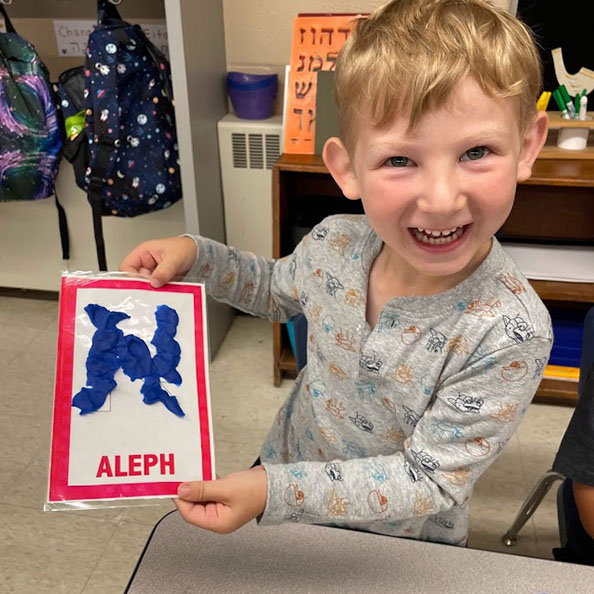
Lower School
Grades K-5
Our General Studies program continues to build on the content and skills of previous grades while introducing more sophisticated, developmentally appropriate strategies and approaches.
Middle School
Grades 6-8
The stimulating curriculum recognizes that middle school is a transformative time of intellectual, emotional, and spiritual development. Over the course of their Middle School years, students encounter a myriad of authentic learning and leadership opportunities…
